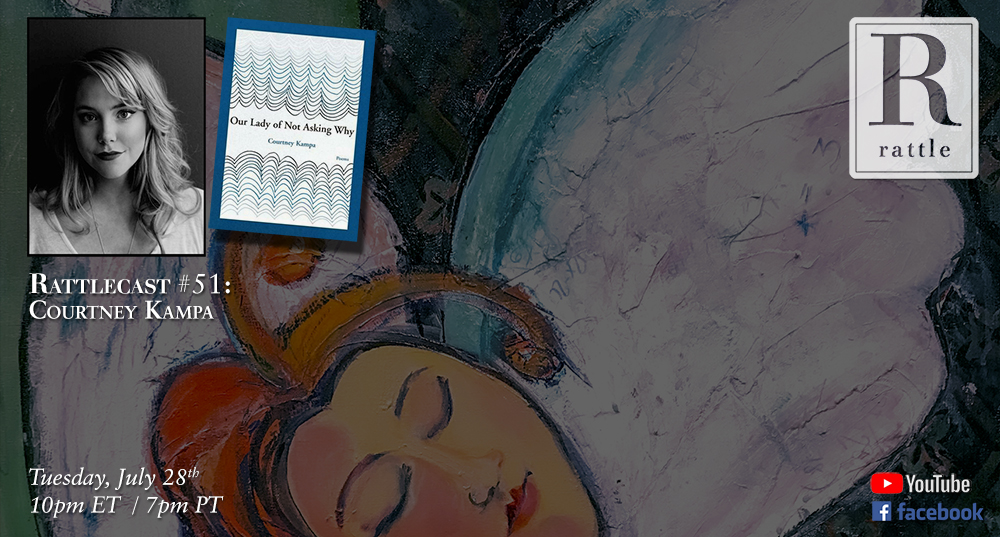Ust Kamenogorsk, Kazakhstan
I.
The video was soft and grainy
as an ultrasound: 11 seconds of a caretaker
holding a baby girl up by the armpits
like a potted plant. When the woman bounced
her in the air, the infant shivered
the way petals do when wind grasps a stem
too thin, too breakable to hold.
We stood a foot from the screen
for hours. Rewind, and play. Rewind, and play.
Inside us, something raised and gathered
like a scar. We were an ache—a gash sealed
for someone other than ourselves.
My husband boiled pots and pots of tea.
We wouldn’t sleep—that baby out there, burning.
Remote and lonely as a star.
II.
At the orphanage she learned early
not to cry—no one came.
Twelve children per nurse, she lay
with sleeves safety-pinned
to the mattress. By mid-afternoon
her window darkened like a clot:
blackness welled up and pooling—
pushing even the clouds
from their sky. Maybe in the stillness
she heard a starling. Maybe she wanted
to sing too—got as far as opening her mouth—but
didn’t know any songs.
III.
To adopt, you visit first.
This is labor:
It is unpinning your baby’s arms
from her crib of toothpicks
and lead paint. It is her squirm when caressed:
caught between an instant of panic
and her lifelong yearn.
It is the cautious curl against a mother’s chest;
how her brown lips part like an upturned beak
as you darn the holes in her clothes. The punctures
made when fettered to her sheets. It is your impulse
to encircle her like a womb. To feel her
breathe and kick in her sleep. To hear her heart
faintly against yours—that pregnant syncopation
you thought you’d never know.
IV.
Touch had turned her hungry—all night
she wailed, her mouth the O
of an open drain.
The next day a nurse yelled
you’ve ruined her—held her too much.
The vein running up her neck
stood out like a blue cable.
She had taught this child what was good
to know: that life would be low pitched
and solo. That dream is just another word
for tunnel. That to be born means the same
as to barrel—the way a train does
from its station. The way this child had, from the body
of the mother
who, first, cut her brakes.
V.
Her toes, like tiny golden hooks, pulled
me up from the world. Mornings she
put the undersides of her feet together,
as though in prayer. I learned a new way to talk
to God—her little feet
in my mouth, in each sentence
I spoke. Once, seeing her socks on the staircase,
the shape of two white eggs,
I burst, grateful, into tears.
VI.
—Did I come from your tummy?
—No, but Grace, you came from my heart.
She hears this, and stretches wide
like the confident roots of a flower.
An outward, earthen stir.
See how her veined palm draws, gently,
toward the roots in mine? Our dangling threads
crocheted into a trellis, like lace—a helix
we’ve doubled and twisted
by hand.
